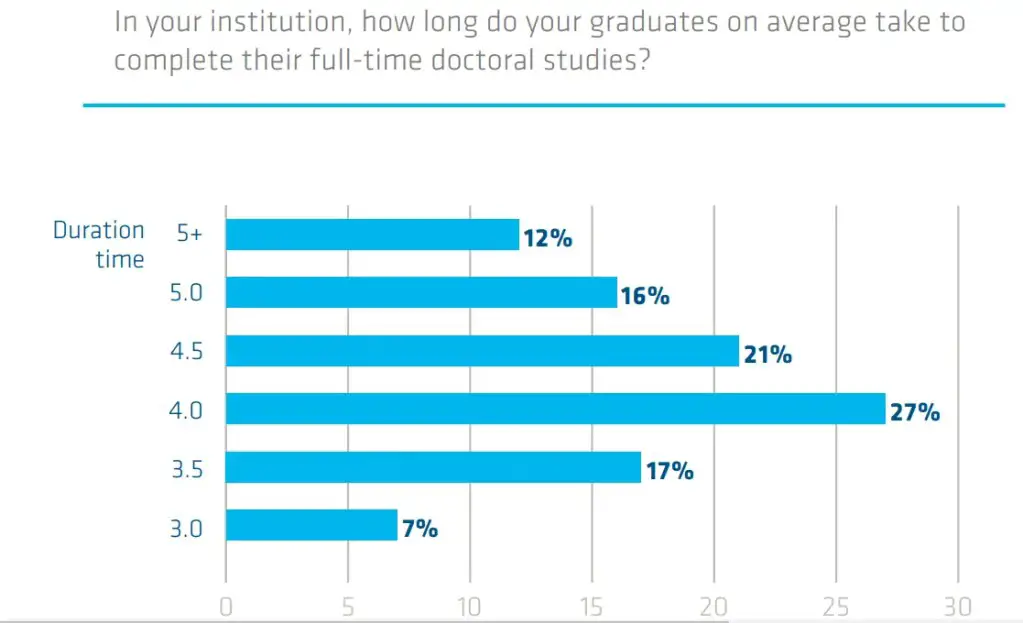
Most European universities require a master’s degree to enter a PhD program. This is one of the fundamental differences to the US system. It also tends to result in less coursework for PhD students in Europe. It raises one fundamental question: On average, how long does it take to complete a PhD after a master’s degree in Europe?
Disclaimer: This post may contain affiliate links, which means I may earn a small commission if you make a purchase using the links below at no additional cost to you. I only recommend products or services that I truly believe can benefit my audience. As always, my opinions are my own.
Contents
Average years to complete a PhD in Europe
The European University Association (EUA) represents more than 850 universities in 49 European countries. Within the EUA, the EUA Council for Doctoral Education surveyed the state of doctoral education in 2018. One of the survey questions asked about the average length of PhD degrees at participating institutions.
According to survey responses from 311 higher education institutions across Europe, PhD students take on average 3.5 – 4.5 years to complete their doctoral studies.
European University Association (2019). Doctoral education in Europe today: approaches and institutional structures.
Next to the average, it is also informative to look at the variation of answers. As the graph below shows, only 7% of universities indicated that it takes students on average 3 years to complete their PhD. On the other hand, 28% indicated that their PhD students take on average 5 years or longer to finish their doctoral studies!

It is important to consider that the data from the EUA survey only refer to full-time PhD studies. Part-time PhDs tend to take considerably longer.
Average length of a PhD in Germany
Within Europe, Germany is a popular destination for PhD students. Luckily, there are more detailed data available on the length of doctoral studies in Germany.
The German Research Foundation conducted a study analysing the length of PhDs that were completed in 2018. On average, it was found that the completion of a doctoral degree took more than four years. According to the study, only 18% of all PhDs completed in Germany in 2018 took fewer than 3.5 years. 27% took more than 5 years. And 9.5% more than six years!
The study also differentiated between academic fields and found some variations. For instance, the median time to complete a PhD in natural sciences was 50 month. It took a median of 56 months for PhD students in the humanities and social sciences to complete their doctoral studies. And 57 months for engineering PhD students to obtain their doctorate.
The study found no significant differences in the length to completion between female and male PhD students, or between PhD students’ origins.

Official versus actual lengths to complete a PhD: A cautionary tale
Unfortunately, there is a frequent mismatch between PhD funding in Europe and the actual time it takes to complete a doctoral degree.
While most PhD positions and scholarships are limited to 3 or 4 year, many PhD students take longer to complete their doctoral studies.
This mismatch can create financial challenges and insecurities for postgraduate students. Starting PhD students benefit from being aware of the average years it takes to obtain a PhD. Just because the expectation is to finish a PhD in three years, it is not always realistic.
Therefore, it can be smart to plan ahead and prepare financially for a potential period in which a PhD salary or scholarship stops, but work remains to be done to complete a PhD.



